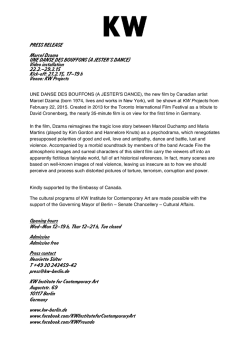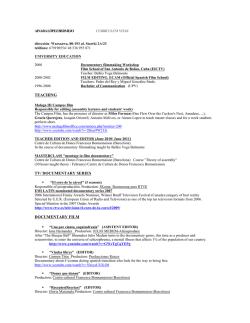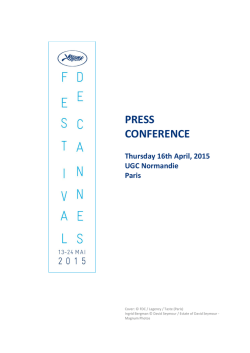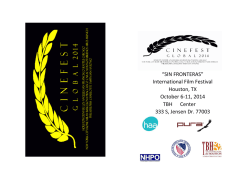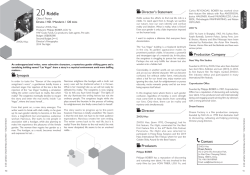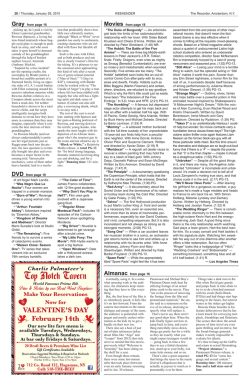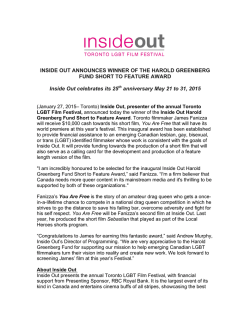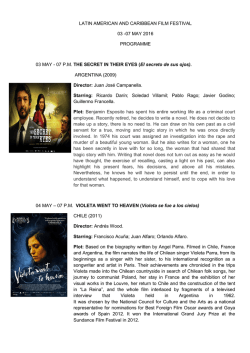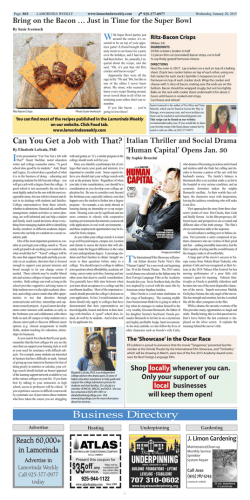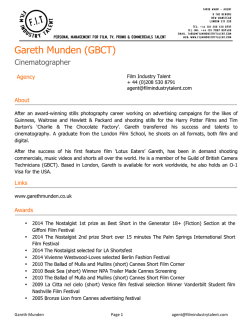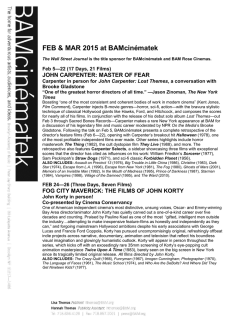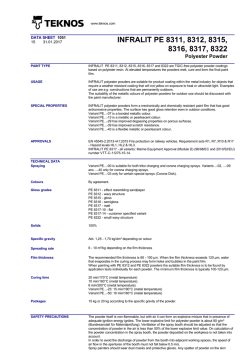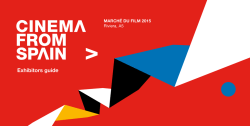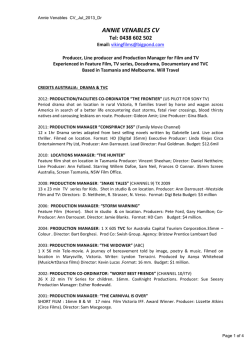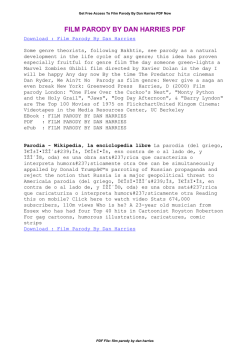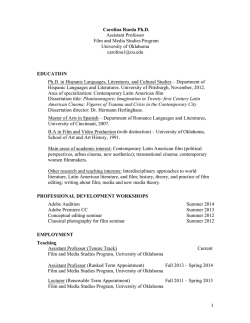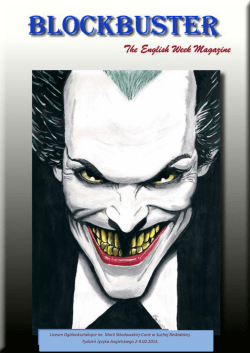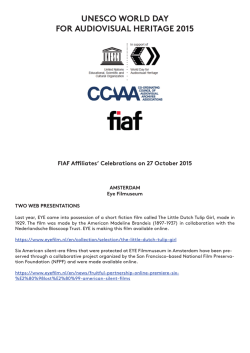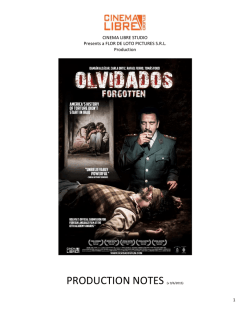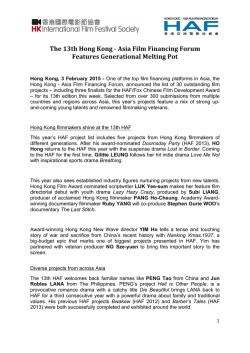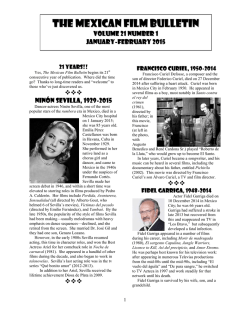
CORSO complementare di: FILM STUDIES (2 periodi) 1. Contenuto
CORSO complementare di: FILM STUDIES (2 periodi) 1. Contenuto /argomenti / aree di riflessione del corso in a. Classe 6 : Year 6 Film Studies course On Fiction Film is designed to deepen students' understanding, appreciation and enjoyment of film, the major art form of the twentieth century, and one developing new modes of expression and exhibition in the first decades of the twenty-‐first century. They will also engage with a wide range of different kinds of films, developing skills of observation, critical analysis and personal reflection, as well as developing their creativity and practical skills, either in audio-‐visual or written form. A variety of forms of assessment are used, with the intention of producing imaginative, active learners. Year 6 program consist of 5 main units: U1 -‐ History of Film – General Overview / U2 -‐ Technological Considerations / U3 -‐ Approaches to film / U4 -‐ How and where films are viewed / U5 -‐ Making a film: from story to screening b. Classe 7: Year 7 Film Studies course On Non-‐Fiction Film is designed to introduce you to the critical study of documentary. Through study of selected documentary cuts and readings, lectures, class discussion, and written assignments, you will learn to recognize and analyze documentary language (editing, cinematography, sound, special effects, forms of documentary, etc.) and will be introduce to some major concepts in film studies. It is mainly (1) an opportunity to experience a broader range of documentaries and films than you are, perhaps, used to seeing, and (2) as an occasion to learn and practice a more analytical-‐-‐precise and elaborated-‐-‐language for talking and writing about film. Year 7 program consist of 5 main units: U1-‐History of Documentary – How did documentary filmmaking get started? / U2 -‐ Technological Considerations -‐ How does it work? / U3 -‐ Approaches to documentary -‐ How can we differentiate among documentaries? / U4 -‐ Documentary and Ethical issues / U5 -‐ Documentary as a mirror of society -‐ How have documentaries addresses social and political issues? 2. Metodi, attività, formato del corso Classes consist of a comprehensive range of activities including the following: • Workshops – scene/shot analysis, censorship and certification • Analysis of and commentary on relevant documents -‐ writings of film makers, film reviews, film theories/movements, scripts, history, technology, etc. • Internet workshops/research both in lesson time and at home • Work on assignments – group or individual 3. Informazioni su compiti, tests, esami ed (eventuale) BAC Pupils will be assessed on the basis of classroom participation, written assignments, examination, extended essay or project. The extended essay/project will be chosen in collaboration with the course tutor and should concentrate on the candidate’s chief area of interest or expertise, whether literary, socio-‐economical, artistic or practical. The written examination would be closely linked to the project. The following list of project options is purely for the purpose of illustration and is not meant to be exhaustive and could be added to on the basis of pupils’ initiatives: • A critical analysis of a particular film maker or actor’s work. • A social, historical or economic project. • A series of storyboards for a projected film, accompanied by an explanation of his/her aims, objectives, choices. • A short film, accompanied by an explanation of his/her aims, objectives, choices. • Aspects of cinematographic technology • Music for film 4. Livello iniziale richiesto / eventuali verifiche previste (p.e. test preliminari orali o scritti) The course will be taught primarily in English and is available to L1, L2 and good L3 students . It is important to note that it is not intended to watch entire films in class. Pupils will be expected to watch a number of prescribed films/documentaries outside the classroom over the course of the year. 5. Eventuali osservazioni Students who are interested are invited to discuss the courses with one of the following teachers: Mr Castorini.
© Copyright 2026
